| |
|
| <div style="width:950px; border: 2px solid #73AD21; background-color:beige;"> - This article is a basic list of the natural wonders of India for one to see and enjoy. - For several religions in India there is a connection with nature, religious belief and history. Be aware of this and as with all places in this country, be respectful. - This a not a complete and comprehensive presentation; however, it does represent many of the important sites of interest to those that enjoy nature or natural sites or wonders. - To further complement an overall general presentation of India and assist you in your travels: - Visit individual articles on regions (e.g. Himalayan North), states (e.g. Himachal Pradesh) and cities (e.g. Agra) to find other interesting places as well as natural sites to visit. Many of these can be found by following the links located within the individual entries listed below. - In addition, special topical articles may also be of some guidance: - Forts and palaces of India — a list of important forts and palaces of India - Indian national parks and wildlife sanctuaries — a list of many of the national parks and wildlife sanctuaries - Indian Zoos and Botanical Gardens — a list of many of the important zoos and botanical gardens of India - Sacred sites of the Indian sub-continent — a few of the most notable sites of the Buddhist, Hindu, Islamic, Jainist, and Sikh faiths - UNESCO World Heritage List (India) — a list of the UNESCO World Heritage sites in India (a few natural sites are listed here) </div> |
| 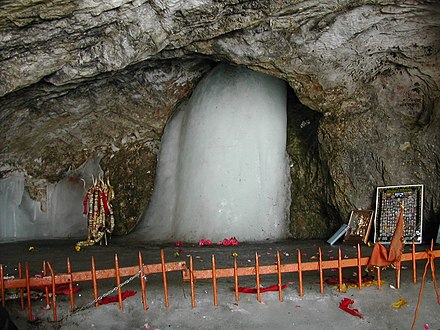 |
| 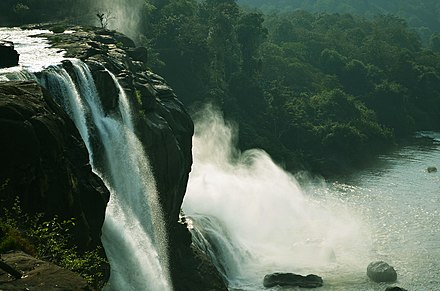 |
|  |
| 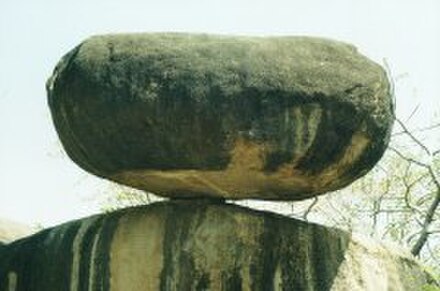 |
| 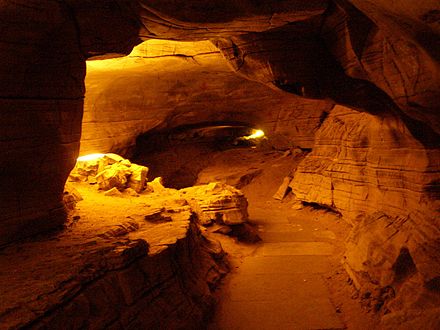 |
| 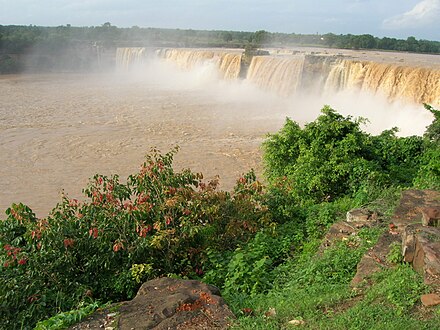 |
|  |
| 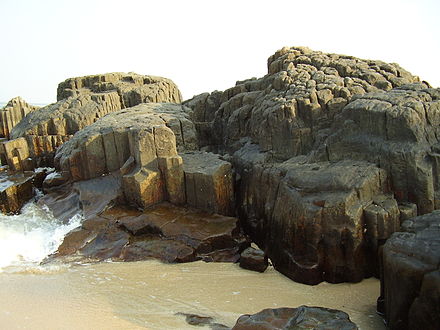 |
| 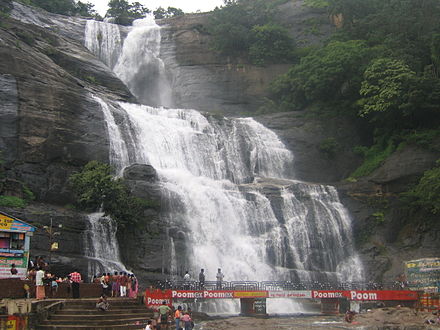 |
|  |
| 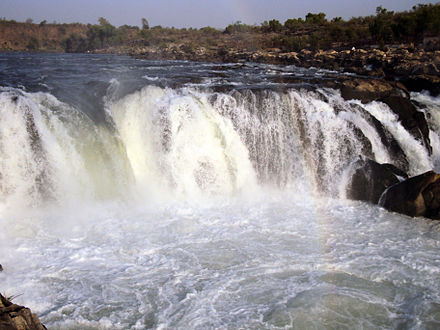 |
|  |
|  |
| 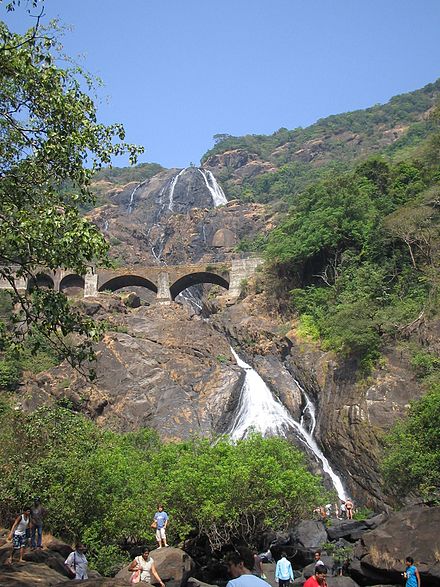 |
| 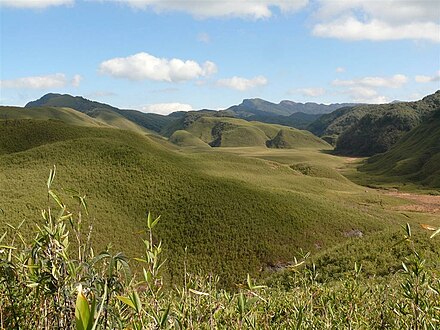 |
|  |
|  |
|  |
| 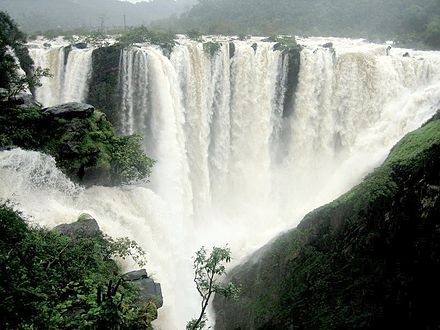 |
| 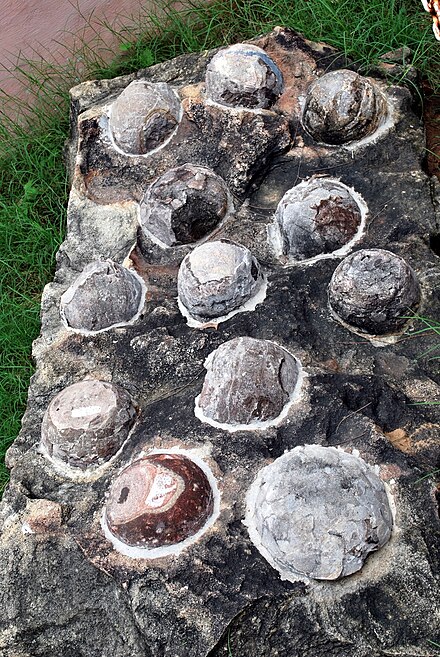 |
|  |
|  |
|  |
| 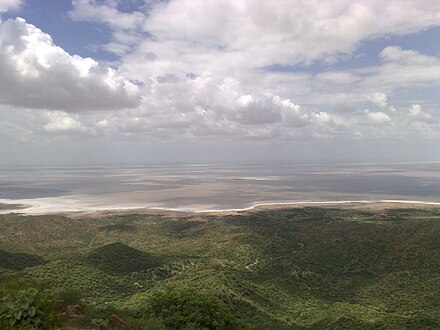 |
|  |
| 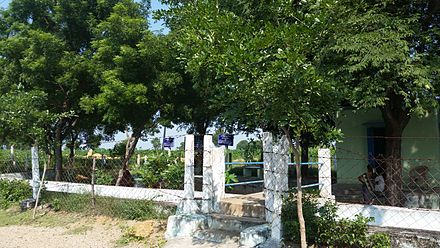 |
| 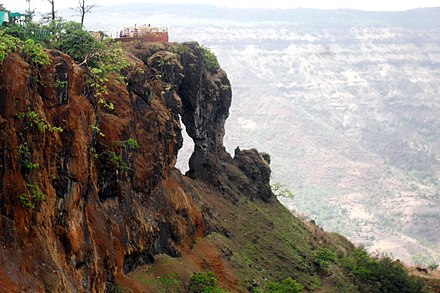 |
|  |
| 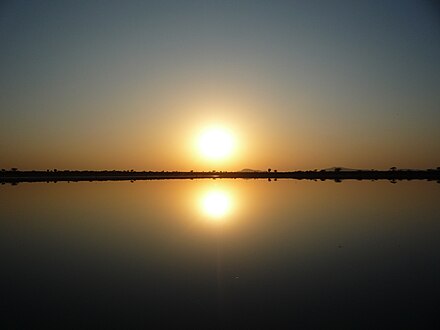 |
| 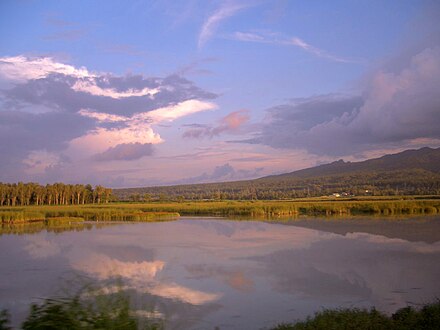 |
| 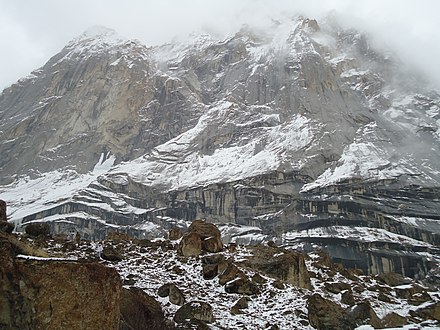 |
|  |
|  |
| 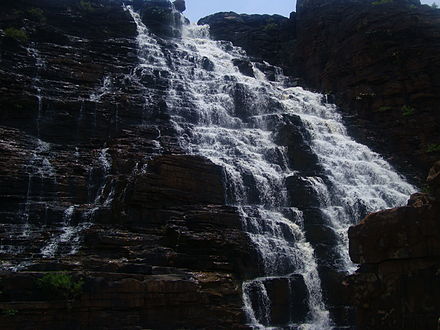 |
| 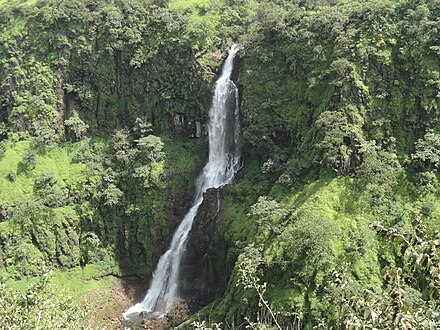 |
| 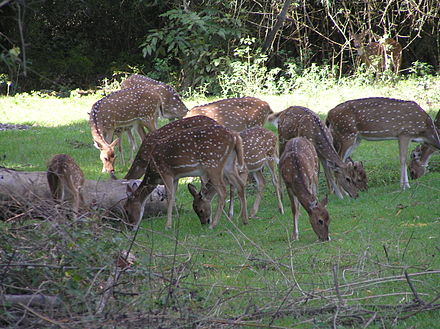 | - Akal Fossil Wood Park, Jaisalmer, Rajasthan, 26.82637°, 71.04235°. Part of the Desert National Park not far from Jaisalmer towards Balmer. It contains fossilized remains of a large Jurassic forest. - Amarnath Cave (Amarnath Temple), Jammu and Kashmir (near Pahalgam), 34.2149°, 75.5008°. Ice Lingam of Lord Shiva - a stalagmite formation created from water drops that froze, considered a holy site. The mountainous area is often covered with snow making it difficult to reach. There are many natural and rock cut caves (temples) in India that may also be of interest. - Athirappilly Waterfall (Niagara of India), Athirappilly Panchayeth, Kerala, 10.28465°, 76.56916°. Located not very far from the city of Thrissur, Athirappilly Falls are the largest waterfalls in Kerala. - Balancing Rock (Krishna's Butterball), Mahabalipuram, 12.61914°, 80.19241°. Krishna's Butter Ball; a giant natural rock balanced on a hillside - see image on the left. - Balancing Rock, Jabalpur, 23.14847°, 79.90167°. An eroded volcanic rock formation; the Balancing Rock of Jabalpur, has survived earthquakes and remained virtually undisturbed through the centuries. - Banni Grasslands Reserve, Gujarat, Kutch, 23.70772°, 69.50229°. - Barren Island, Andaman and Nicobar Islands, 12.27923°, 93.86044°. India's only volcano is located on Barren Island. Day trips can be arranged to view Barren Island by boat. Landing on the island is prohibited. - Belum Caves, Bellum, Andhra Pradesh, 15.10275°, 78.11147°. Bellum Caves; one of the largest and longest caves in India, it has stalactite and stalagmite black limestone formations, long passages, large chambers and fresh water galleries that make up this natural wonder. - Borra Guhalu (Borra Caves), Araku Valley, 18.166667°, 83°. The Borra Caves (Borra Guhalu) are to be found in the Ananthagiri hills of the Araku valley (East coast of India). These deep cave(s) are home to bats, golden geckoes, fruit bats and numerous insect species. - Chitrakote Waterfall, Chhattisgarh, 19.200833°, 81.699722°. This is considered to be the widest waterfall in India. - Columnar Basaltic Lava, Karnataka, 13.3795°, 74.673°. St.Mary's Islands (Coconut Island and Thonsepar) are islands found in the Arabian Sea known for their geologic columnar basaltic lava formations. - Coral Reefs, Lakshadweep, 10.865°, 72.194°. The Lakshadweep is a group of islands (coral atolls). Other reefs include the Gulf of Kutch, Gulf of Mannar, Andaman and Nicobar Islands among others. Diving opportunities may be available. - Courtallam Waterfall, Courtallam, Tamil Nadu, 8.92957°, 77.26932°. This waterfall is known as the Spa of the South for its medicinal properties. - Dandak Cave, Chhattisgarh, 18.90100°, 81.91118°. A well known limestone cave found in the Kanger Ghati National Park - Deodar Forest, Himachal Pradesh, 31.73380°, 77.23895°. Deodar cedar (national tree of Pakistan forest(s) can be found in the Western Himalayas. - Dhuandhar Waterfall, Madhya Pradesh, 23.125°, 79.813°. Dhuandhar (Dhuan - smoke, Dhar - flow). Located on Narmada River in Bhedaghat. The Narmada River runs through the famous Marble Rocks (see below) before plunging down the Dhuandhar. - Dudhsagar Falls, Goa, 15.31447°, 74.31407°. Water from the high peaks of the Western Ghats create this magnificent Dudhsagar Waterfall. Listed as one of the highest waterfalls in India and perhaps the most beautiful in the world. - Dzhatinga Valley (Jatinga Valley), Jinga, Assam, 25.14034°, 93.02156°. During August thru November, migratory birds hurl themselves to their death. This phenomena of light disorientation due to fog and the high altitude affects mostly fledglings. These birds are often considered evil spirits. - Dzukou Valley, 25.55658°, 94.06724°. Located between the states of Nagaland and Manipur, similar to The Valley of Flowers and the Kas Plateau, it has a variety of seasonal flowers and a wide range of plants and animals. - Floating Lake (Loktak Lake), Keibul Lamjao National Park, Manipur, 24.55934°, 93.81465°. Loktak Lake of Manipur (Floating Lake) is home to the endangered sangai (brow-antlered deer). It is provides a habitat for numerous waterbirds and wetland birds. - Gurudongmar Lake, Sikkim, 28.02576°, 88.70969°. One of the highest lakes in the world. - Heart Shaped Lake, Chembra peak, Kerala, 11.51175°, 76.08870°. A heart shaped lake located on Chembra peak (midway). - Hide and Seek Beach (Chandipur Beach), Balasore, Orissa, 21.45200°, 87.04103°. A natural phenomenon that occurs when the tide goes out (the beach appears) and when the tide comes in (the beach completely disappears). - Himalayas, 27.988056°, 86.925278°. A range of mountains found in the Himalayan North, North-Eastern India, North Bengal and Sikkim. These provide a large water source to India. Many rivers have their origins in the Himalayas (such as the (holy Ganges and Yamuna rivers). A wide diversity of plants and animals abound here. Some of the highest mountains in the world are located in the Himalayas. They provide the opportunities for trekking, mountain climbing and scenic views. - Hogenakal Falls (Hogenakkal Falls), Hogenakal (Village), Tamil Nadu, 12.10879°, 77.77331°. Referred to as the "Niagara of India" (as is the Athirappilly Waterfall). There are medicinal baths here and boat rides when the Kaveri River is low. - Hot water Spring, Manikaran, Kullu (district), 32.02736°, 77.34744°. Manikaran is considered as a pilgrim center for both Hindus and Sikhs. Pilgrims often come here to bathe in the spring. - Indroda Dinosaur & Fossil Park (Ahmedabad, Gujarat), 23.19773°, 72.65697°. A large dinosaur hatchery can be found here. This park has life-sized models of various dinosaurs, fossilized dinosaur eggs as well as dinosaur tracks and bones. - Jog Waterfall (Gerosoppa Falls or Joga Falls), Karnataka, 14.22842°, 74.81022°. Located on the Sharavathi River, Jog Falls (second highest plunge fall in India after Nohkalikai Falls) includes Raj Fall the Roarer, the Rocket and the Rani. - Kas Plateau, 17.720161°, 73.822792°. The Kas Plateau (similar to the Valley of Flowers) is a Biodiversity World Heritage Site noted for a large diversity of flowers, shrubs and plants (including orchids). It is near the city of Satara. - Khandadhar Waterfall, Sundagarh, Orissa, 21.77455°, 85.32213°. One of two waterfalls (named Khandadhar Waterfall) found in the Kendujhar district in Orissa. - Krem Liat Prah Cave, Meghalaya, 25.33357°, 92.66298°. Located in the Shnongrim Ridge, Jaintia Hills of Meghalaya is the longest cave (approx. 25km) in India. It has a large passage called the Airplane Hanger. This area has hundreds of caves ready for exploration. - Kutumsar Caves (Cotumsar Caves), Chhattisgarh, 18.90669°, 81.90505°. Limestone caves found in Kanger Ghati National Park - see also: Dandak Cave - Living Root Bridge (Double Root Bridge), Nongriat Village, Meghalaya, 25.24058°, 91.68187°. The Root Bridges of Cherrapunji (Double Decker Living Root Bridge) constructed using the roots of the Ficus elastica tree. - Lonar Crater Lake (Lonar Sarovar), Buldhana or Buldana, 19.97578°, 76.50691°. This is perhaps the oldest meteoric crater formed in basalt rock. - Magnetic Hill, Ladakh, 34.16970°, 77.35186°. Area on the Srinagar-Leh highway approximately 30 km from Leh. An optical illusion is created because of the landscape, in which it appears gravity pulls your vehicle uphill when in neutral. - Majuli Island (Incredible Majuli Island), Assam, 26.95°, 94.166667°. Considered the largest river island and located in the Brahmaputra River in Assam, Majuli has a large diversity of life, including rare and endangered species. - Marble Rocks, near Jabalpur, 23.1312°, 79.7965°. The Marble Rocks near Jabalpur (approximaely 3km long) is a canyon (gorge) on the Narmada River. The beautiful soft marble is in the process of being scoured by the strong river. - National Fossil Wood Park, Sattanur, Tamil Nadu, 11.161139°, 78.976417°. This park has a fossilized tree trunk reputed to be approximately 120+ million years old. - National Fossil Wood Park, Tiruvakkarai, Tamil Nadu, 12.026106°, 79.651614°. A geological park located in the Villupuram District reputed to contain 20 million year old fossilized trees. - Needle Hole Point (Elephant Point), Mahabaleshware, Maharashtra, 11.49944°, 76.52109°. Natural rock formation shaped like an elephant's trunk - Nellitheertha Cave (Nellitheertha Cave Temple), Nellitheertha, Karnataka, 13.01637°, 74.90901°. This cave is located within the Nellitheertha Cave Temple, and has a low ceiling, a small lake and Shiva Lingam. - Nohsngithiang waterfall (Seven Sisters or Mawsmai Falls), Meghalaya, 25.27563°, 91.68650°. A stepped waterfall (seven cascades). The famous Mawsmai Cave is located nearby. - Rann of Kutch, Kutch, Gujarat, 24.04543°, 70.14558°. A large (if not the largest) salt desert in the world. - River Yamuna (Jamuna River), 25.419844°, 81.884944°. Considered as a Hindu goddess, the Yamuna merges with the Ganges (Ganga). Other major rivers in India include the Narmada, Mahanadi and Brahmaputra. There are many religious (holy) sites located along the Yamuna river, like Allahabad (Prayaraj). - Shivalik Fossil Park (Suketi Fossil Park), Saketi, Sirmaur (district), Himachal Pradesh, 30.50533°, 77.24226°. Shivlik Fossil Park has fossil (skeletal) remains, replications of extinct animals and a museum. - Sambhar Salt Lake (Shakambari Jheel), Sambhar, 26.94654°, 75.07280°. Largest inland salt lake in India is a major migratory site providing a wintering home for flamingos and other birds. It is a source of salt in Rajasthan. - Siachen Glacier, Nubra Valley, Ladakh, 35.46390°, 77.04390°. The largest glacier in South Asia. Both Pakistan and India maintain a military presence in the area. Most of the Siachen Glacier area is controlled by India while Pakistan controls some territory southwest of the Saltoro Ridge. - Sundarbans Mangroves, Southeast Bengal, West Bengal, 21.96501°, 88.85923°. The Sundarbans are the largest mangrove forest in the world. It is also a reserve for the Bengal tiger. The swamp forest and mangroves is a unique ecosystem rich in wildlife. - Talakona Waterfall, Tirupati, Andhra Pradesh, 13.811667°, 79.215556°. Highest waterfall in Andhra Pradesh - Thoseghar Waterfalls, Satara, Maharashtra, 17.596622°, 73.845828°. Stunning waterfalls with viewing platforms and picnic areas. - Tirathgarh Waterfalls (Milky Fall or Teerathgarh Falls), Chhattisgarh (38km from Jagdalpur), 18.91394°, 81.86516°. Located in Kanger Ghati National Park. Nearby are the Kutumsar Caves. - Valley of Flowers (Yumthang Valley), Uttarakhand, 30.72804°, 79.60530°. Valley of Flowers National Park in Uttarakhand is home to rare alpine flowers as well as endangered animals and birds. - Wildlife Corridor, Tamil Nadu, 11.5833°, 76.5500°. The Mudumalai Sanctuary located in Western Ghats and Eastern Ghats of Tamil Nadu, Kerala and Karnataka (Nilgiris hills.) - There are many more natural wonders to see and enjoy in India, those sites listed above are but a notable sampling — National Parks, Zoos, Museums of Natural History, Gardens and Reserves etc.; though not listed, are also good sources for viewing and understanding the natural beauty of India. |
| - Akal Fossil Wood Park, Jaisalmer, Rajasthan, 26.82637°, 71.04235°. Part of the Desert National Park not far from Jaisalmer towards Balmer. It contains fossilized remains of a large Jurassic forest. - Amarnath Cave (Amarnath Temple), Jammu and Kashmir (near Pahalgam), 34.2149°, 75.5008°. Ice Lingam of Lord Shiva - a stalagmite formation created from water drops that froze, considered a holy site. The mountainous area is often covered with snow making it difficult to reach. There are many natural and rock cut caves (temples) in India that may also be of interest. - Athirappilly Waterfall (Niagara of India), Athirappilly Panchayeth, Kerala, 10.28465°, 76.56916°. Located not very far from the city of Thrissur, Athirappilly Falls are the largest waterfalls in Kerala. - Balancing Rock (Krishna's Butterball), Mahabalipuram, 12.61914°, 80.19241°. Krishna's Butter Ball; a giant natural rock balanced on a hillside - see image on the left. - Balancing Rock, Jabalpur, 23.14847°, 79.90167°. An eroded volcanic rock formation; the Balancing Rock of Jabalpur, has survived earthquakes and remained virtually undisturbed through the centuries. - Banni Grasslands Reserve, Gujarat, Kutch, 23.70772°, 69.50229°. - Barren Island, Andaman and Nicobar Islands, 12.27923°, 93.86044°. India's only volcano is located on Barren Island. Day trips can be arranged to view Barren Island by boat. Landing on the island is prohibited. - Belum Caves, Bellum, Andhra Pradesh, 15.10275°, 78.11147°. Bellum Caves; one of the largest and longest caves in India, it has stalactite and stalagmite black limestone formations, long passages, large chambers and fresh water galleries that make up this natural wonder. - Borra Guhalu (Borra Caves), Araku Valley, 18.166667°, 83°. The Borra Caves (Borra Guhalu) are to be found in the Ananthagiri hills of the Araku valley (East coast of India). These deep cave(s) are home to bats, golden geckoes, fruit bats and numerous insect species. - Chitrakote Waterfall, Chhattisgarh, 19.200833°, 81.699722°. This is considered to be the widest waterfall in India. - Columnar Basaltic Lava, Karnataka, 13.3795°, 74.673°. St.Mary's Islands (Coconut Island and Thonsepar) are islands found in the Arabian Sea known for their geologic columnar basaltic lava formations. - Coral Reefs, Lakshadweep, 10.865°, 72.194°. The Lakshadweep is a group of islands (coral atolls). Other reefs include the Gulf of Kutch, Gulf of Mannar, Andaman and Nicobar Islands among others. Diving opportunities may be available. - Courtallam Waterfall, Courtallam, Tamil Nadu, 8.92957°, 77.26932°. This waterfall is known as the Spa of the South for its medicinal properties. - Dandak Cave, Chhattisgarh, 18.90100°, 81.91118°. A well known limestone cave found in the Kanger Ghati National Park - Deodar Forest, Himachal Pradesh, 31.73380°, 77.23895°. Deodar cedar (national tree of Pakistan forest(s) can be found in the Western Himalayas. - Dhuandhar Waterfall, Madhya Pradesh, 23.125°, 79.813°. Dhuandhar (Dhuan - smoke, Dhar - flow). Located on Narmada River in Bhedaghat. The Narmada River runs through the famous Marble Rocks (see below) before plunging down the Dhuandhar. - Dudhsagar Falls, Goa, 15.31447°, 74.31407°. Water from the high peaks of the Western Ghats create this magnificent Dudhsagar Waterfall. Listed as one of the highest waterfalls in India and perhaps the most beautiful in the world. - Dzhatinga Valley (Jatinga Valley), Jinga, Assam, 25.14034°, 93.02156°. During August thru November, migratory birds hurl themselves to their death. This phenomena of light disorientation due to fog and the high altitude affects mostly fledglings. These birds are often considered evil spirits. - Dzukou Valley, 25.55658°, 94.06724°. Located between the states of Nagaland and Manipur, similar to The Valley of Flowers and the Kas Plateau, it has a variety of seasonal flowers and a wide range of plants and animals. - Floating Lake (Loktak Lake), Keibul Lamjao National Park, Manipur, 24.55934°, 93.81465°. Loktak Lake of Manipur (Floating Lake) is home to the endangered sangai (brow-antlered deer). It is provides a habitat for numerous waterbirds and wetland birds. - Gurudongmar Lake, Sikkim, 28.02576°, 88.70969°. One of the highest lakes in the world. - Heart Shaped Lake, Chembra peak, Kerala, 11.51175°, 76.08870°. A heart shaped lake located on Chembra peak (midway). - Hide and Seek Beach (Chandipur Beach), Balasore, Orissa, 21.45200°, 87.04103°. A natural phenomenon that occurs when the tide goes out (the beach appears) and when the tide comes in (the beach completely disappears). - Himalayas, 27.988056°, 86.925278°. A range of mountains found in the Himalayan North, North-Eastern India, North Bengal and Sikkim. These provide a large water source to India. Many rivers have their origins in the Himalayas (such as the (holy Ganges and Yamuna rivers). A wide diversity of plants and animals abound here. Some of the highest mountains in the world are located in the Himalayas. They provide the opportunities for trekking, mountain climbing and scenic views. - Hogenakal Falls (Hogenakkal Falls), Hogenakal (Village), Tamil Nadu, 12.10879°, 77.77331°. Referred to as the "Niagara of India" (as is the Athirappilly Waterfall). There are medicinal baths here and boat rides when the Kaveri River is low. - Hot water Spring, Manikaran, Kullu (district), 32.02736°, 77.34744°. Manikaran is considered as a pilgrim center for both Hindus and Sikhs. Pilgrims often come here to bathe in the spring. - Indroda Dinosaur & Fossil Park (Ahmedabad, Gujarat), 23.19773°, 72.65697°. A large dinosaur hatchery can be found here. This park has life-sized models of various dinosaurs, fossilized dinosaur eggs as well as dinosaur tracks and bones. - Jog Waterfall (Gerosoppa Falls or Joga Falls), Karnataka, 14.22842°, 74.81022°. Located on the Sharavathi River, Jog Falls (second highest plunge fall in India after Nohkalikai Falls) includes Raj Fall the Roarer, the Rocket and the Rani. - Kas Plateau, 17.720161°, 73.822792°. The Kas Plateau (similar to the Valley of Flowers) is a Biodiversity World Heritage Site noted for a large diversity of flowers, shrubs and plants (including orchids). It is near the city of Satara. - Khandadhar Waterfall, Sundagarh, Orissa, 21.77455°, 85.32213°. One of two waterfalls (named Khandadhar Waterfall) found in the Kendujhar district in Orissa. - Krem Liat Prah Cave, Meghalaya, 25.33357°, 92.66298°. Located in the Shnongrim Ridge, Jaintia Hills of Meghalaya is the longest cave (approx. 25km) in India. It has a large passage called the Airplane Hanger. This area has hundreds of caves ready for exploration. - Kutumsar Caves (Cotumsar Caves), Chhattisgarh, 18.90669°, 81.90505°. Limestone caves found in Kanger Ghati National Park - see also: Dandak Cave - Living Root Bridge (Double Root Bridge), Nongriat Village, Meghalaya, 25.24058°, 91.68187°. The Root Bridges of Cherrapunji (Double Decker Living Root Bridge) constructed using the roots of the Ficus elastica tree. - Lonar Crater Lake (Lonar Sarovar), Buldhana or Buldana, 19.97578°, 76.50691°. This is perhaps the oldest meteoric crater formed in basalt rock. - Magnetic Hill, Ladakh, 34.16970°, 77.35186°. Area on the Srinagar-Leh highway approximately 30 km from Leh. An optical illusion is created because of the landscape, in which it appears gravity pulls your vehicle uphill when in neutral. - Majuli Island (Incredible Majuli Island), Assam, 26.95°, 94.166667°. Considered the largest river island and located in the Brahmaputra River in Assam, Majuli has a large diversity of life, including rare and endangered species. - Marble Rocks, near Jabalpur, 23.1312°, 79.7965°. The Marble Rocks near Jabalpur (approximaely 3km long) is a canyon (gorge) on the Narmada River. The beautiful soft marble is in the process of being scoured by the strong river. - National Fossil Wood Park, Sattanur, Tamil Nadu, 11.161139°, 78.976417°. This park has a fossilized tree trunk reputed to be approximately 120+ million years old. - National Fossil Wood Park, Tiruvakkarai, Tamil Nadu, 12.026106°, 79.651614°. A geological park located in the Villupuram District reputed to contain 20 million year old fossilized trees. - Needle Hole Point (Elephant Point), Mahabaleshware, Maharashtra, 11.49944°, 76.52109°. Natural rock formation shaped like an elephant's trunk - Nellitheertha Cave (Nellitheertha Cave Temple), Nellitheertha, Karnataka, 13.01637°, 74.90901°. This cave is located within the Nellitheertha Cave Temple, and has a low ceiling, a small lake and Shiva Lingam. - Nohsngithiang waterfall (Seven Sisters or Mawsmai Falls), Meghalaya, 25.27563°, 91.68650°. A stepped waterfall (seven cascades). The famous Mawsmai Cave is located nearby. - Rann of Kutch, Kutch, Gujarat, 24.04543°, 70.14558°. A large (if not the largest) salt desert in the world. - River Yamuna (Jamuna River), 25.419844°, 81.884944°. Considered as a Hindu goddess, the Yamuna merges with the Ganges (Ganga). Other major rivers in India include the Narmada, Mahanadi and Brahmaputra. There are many religious (holy) sites located along the Yamuna river, like Allahabad (Prayaraj). - Shivalik Fossil Park (Suketi Fossil Park), Saketi, Sirmaur (district), Himachal Pradesh, 30.50533°, 77.24226°. Shivlik Fossil Park has fossil (skeletal) remains, replications of extinct animals and a museum. - Sambhar Salt Lake (Shakambari Jheel), Sambhar, 26.94654°, 75.07280°. Largest inland salt lake in India is a major migratory site providing a wintering home for flamingos and other birds. It is a source of salt in Rajasthan. - Siachen Glacier, Nubra Valley, Ladakh, 35.46390°, 77.04390°. The largest glacier in South Asia. Both Pakistan and India maintain a military presence in the area. Most of the Siachen Glacier area is controlled by India while Pakistan controls some territory southwest of the Saltoro Ridge. - Sundarbans Mangroves, Southeast Bengal, West Bengal, 21.96501°, 88.85923°. The Sundarbans are the largest mangrove forest in the world. It is also a reserve for the Bengal tiger. The swamp forest and mangroves is a unique ecosystem rich in wildlife. - Talakona Waterfall, Tirupati, Andhra Pradesh, 13.811667°, 79.215556°. Highest waterfall in Andhra Pradesh - Thoseghar Waterfalls, Satara, Maharashtra, 17.596622°, 73.845828°. Stunning waterfalls with viewing platforms and picnic areas. - Tirathgarh Waterfalls (Milky Fall or Teerathgarh Falls), Chhattisgarh (38km from Jagdalpur), 18.91394°, 81.86516°. Located in Kanger Ghati National Park. Nearby are the Kutumsar Caves. - Valley of Flowers (Yumthang Valley), Uttarakhand, 30.72804°, 79.60530°. Valley of Flowers National Park in Uttarakhand is home to rare alpine flowers as well as endangered animals and birds. - Wildlife Corridor, Tamil Nadu, 11.5833°, 76.5500°. The Mudumalai Sanctuary located in Western Ghats and Eastern Ghats of Tamil Nadu, Kerala and Karnataka (Nilgiris hills.) - There are many more natural wonders to see and enjoy in India, those sites listed above are but a notable sampling — National Parks, Zoos, Museums of Natural History, Gardens and Reserves etc.; though not listed, are also good sources for viewing and understanding the natural beauty of India. |
 |
|  |
|  |
|  |
|  |
| 
 |
|  |
|  |
|  |
| 
 |
|  |
|  |
| 
 |
|  |
| 
 |
| 
 |
| 
 |
|  |
|  |
|  |
| 


 |
| 
 |
|  |
|  |
| 
